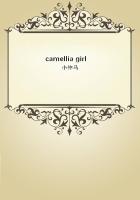Depression had come after over-excitement. This is a phenomenon frequently seen immediately after political convulsions.
It might be called the perpetual failure of revolutionary promises.
It was under all these influences that George Sand wrote _Lelia_.
She finished it in July, and it appeared in August, 1833.
It is absolutely impossible to give an analysis of _Lelia_. There really is no subject. The personages are not beings of flesh and blood.
They are allegories strolling about in the garden of abstractions.
Lelia is a woman who has had her trials in life. She has loved and been disappointed, so that she can no longer love at all. She reduces the gentle poet Stenio to despair. He is much younger than she is, and he has faith in life and in love. His ingenuous soul begins to wither and to lose its freshness, thanks to the scepticism of the beautiful, disdainful, ironical and world-weary Lelia. This strange person has a sister Pulcherie, a celebrated courtesan, whose insolent sensuality is a set-off to the other one's mournful complaints.
We have here the opposition of Intelligence and of the Flesh, of Mind and Matter. Then comes Magnus, the priest, who has lost his faith, and for whom Lelia is a temptation, and after him we have Trenmor, Lelia's great friend, Trenmor, the sublime convict.
As a young man he had been handsome. He had loved and been young.
He had known what it was to be only twenty years of age.
"The only thing was, he had known this at the age of sixteen"(!!) He had then become a gambler, and here follows an extraordinary panegyric on the fatal passion for gambling. Trenmor ruins himself, borrows without paying back, and finally swindles "an old millionaire who was himself a defrauder and a dissipated man" out of a hundred francs. Apparently the bad conduct of the man Trenmor robs, excuses the swindling. He is condemned to five years of hard labour.
He undergoes his punishment, and is thereby regenerated.
"What if I were to tell you," writes George Sand, "that such as he now is, crushed, with a tarnished reputation, ruined, I consider him superior to all of us, as regards the moral life. As he had deserved punishment, he was willing to bear it. He bore it, living for five years bravely and patiently among his abject companions.
He has come back to us out of that abominable sewer holding his head up, calm, purified, pale as you see him, but handsome still, like a creature sent by God."We all know how dear convicts are to the hearts of romantic people.
There is no need for me to remind you how they have come to us recently, encircled with halos of suffering and of purity. We all remember Dostoiewsky's _Crime and Punishment_ and Tolstoi's _Resurrection_.
When the virtue of expiation and the religion of human suffering came to us from Russia, we should have greeted them as old acquaintances, if certain essential works in our own literature, of which these books are the issue, had not been unknown to us.
The last part of the novel is devoted to Stenio. Hurt by Lelia's disdain, which has thrown him into the arms of her sister Pulcherie, he gives himself up to debauch. We find him at a veritable orgy in Pulcherie's house. Later on he is in a monastery at Camaldules, talking to Trenmor and Magnus. In such books we must never be astonished. . . . There is a long speech by Stenio, addressed to Don Juan, whom he regrets to have taken as his model. The poor young man of course commits suicide. He chooses drowning as the author evidently prefers that mode of suicide. Lelia arrives in time to kneel down by the corpse of the young man who has been her victim.
Magnus then appears on the scene, exactly at the right moment, to strangle Lelia. Pious hands prepare Lelia and Stenio for their burial. They are united and yet separated up to their very death.
The summing up we have given is the original version of _Lelia_.
In 1836, George Sand touched up this work, altering much of it and spoiling, what she altered. It is a pity that her new version, which is longer, heavier and more obscure, should have taken the place of the former one. In its first form _Lelia_ is a work of rare beauty, but with the beauty of a poem or an oratorio.
It is made of the stuff of which dreams are composed. It is a series of reveries, adapted to the soul of 1830. At every different epoch there is a certain frame of mind, and certain ideas are diffused in the air which we find alike in the works of the writers of that time, although they did not borrow them from each other. _Lelia_ is a sort of summing up of the themes then in vogue in the personal novel and in lyrical poetry. The theme of that suffering which is beneficent and inspiring is contained in the following words:
"Come back to me, Sorrow! Why have you left me? It is by grief alone that man is great." This is worthy of Chateaubriand.
The theme of melancholy is as follows: "The moon appeared. . . .
What is the moon, and what is its nocturnal magic to me? One hour more or less is nothing to me." This might very well be Lamartine.
We then have the malediction pronounced in face of impassible Nature:
"Yes, I detested that radiant and magnificent Nature, for it was there before me in all its stupid beauty, silent and proud, for us to gaze on, believing that it was enough to merely show itself."This reminds us of Vigny in his _Maison du berger_. Then we have the religion of love: "Doubt God, doubt men, doubt me if you like, but do not doubt love." This is Musset.
But the theme which predominates, and, as we have compared all this to music, we might say the _leit-motiv_ of all, is that of desolation, of universal despair, of the woe of life. It is the same lamentation which, ever since Werther, was to be heard throughout all literature.















